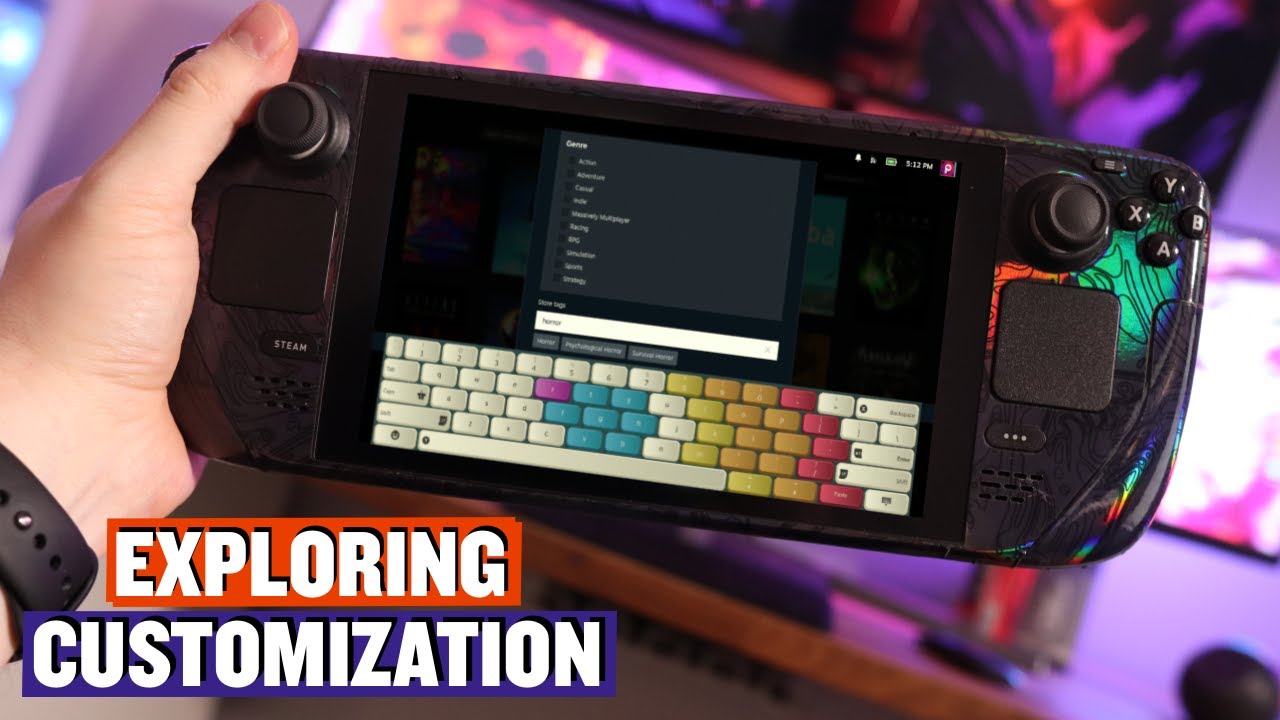Navigating Handheld Gaming Challenges: Dragon Age and Apex Legends on Steam Deck
The world of portable gaming has been both revolutionary and challenging, particularly with high-profile titles like Dragon Age: The Veilguard and Apex Legends. While gamers often celebrate the versatility of handheld devices like the Steam Deck, they also face unique hurdles, especially regarding optimization and cheat-related restrictions.
Optimizing Dragon Age: The Veilguard for Steam Deck
For Dragon Age: The Veilguard enthusiasts, playing on handheld systems can sometimes turn into a frustrating experience. However, players can embrace some optimization settings that promise to enhance gameplay significantly. The game struggles on devices like the Steam Deck, but with the right configurations, a smoother performance can be achieved.
Recommended Settings
- In-Game Setting: Active Monitor: Generic non-PNP Monitor
- Window Mode: Full Screen
- Screen Resolution: 1280 x 800
- Refresh Rate: 90Hz
- Frame Rate Limit: Uncapped
- VSync: Off
- Brightness: Default
- Enable HDR: On (calibrated as per preference)
- Upscale Method: Intel XESS
- Texture Quality: Low
- Anti-Aliasing: Disabled
- Dynamic Resolution Scaling: On
- Target Frames Per Second: 60
Implementing these settings allows players to enjoy the narrative and immersive world of Dragon Age while optimizing performance on the Steam Deck. Users have reported that these adjustments help manage battery drain and ensure a steadier frame rate.
Achieving peak performance on portable platforms can enhance the gaming experience.
EA’s Controversial Decision: The End of Apex Legends on Steam Deck
In a significant blow to gamers who enjoyed competitive play, EA has officially withdrawn Apex Legends from the Steam Deck. This decision stems from ongoing issues with cheat prevalence associated with the Linux operating system, which many hand-held gaming devices utilize. Despite the game’s popularity, a small yet disruptive faction exploited vulnerabilities, leading EA to prioritize overall game integrity over availability on this platform.
In a statement, EA remarked:
“We had to weigh the decision on the number of players who were legitimately playing on Linux/the Steam Deck versus the greater health of the population of players for Apex.”
This decision has not come lightly, as EA further clarified that the openness of Linux enhances cheating opportunities, a significant concern for competitive integrity. Consequently, players can still access Apex Legends through Steam on Windows platforms, but sadly, the same can’t be said for Steam Deck users. The move echoes past decisions by other developers, who have similarly restricted competitive titles on this platform, citing anti-cheat issues as the rationale.
EA’s decision to block Apex Legends due to cheating on Steam Deck has left many gamers disappointed.
The Bigger Picture: Challenges of Handheld Gaming
The juxtaposition of Dragon Age: The Veilguard’s performance optimization needs and Apex Legends’ removal highlights broader trends within handheld gaming. With the ever-growing library of games targeting handheld devices, developers face complex challenges balancing performance, stability, and fair play.
As the market expands, developers are compelled to refine their titles for varied hardware specifications while maintaining competitive integrity and user engagement. Moments like these serve as a reminder of the delicate nature of game releases on portable systems. At their best, these devices embody accessibility and freedom for players; at their worst, they expose vulnerabilities in the game design and distribution framework.
Future Prospects for Handheld Gaming
Despite recent setbacks, the future of handheld gaming looks promising. As technology advances, we can expect more robust solutions for issues like optimization and anti-cheat mechanisms. Developers and hardware manufacturers must collaborate to ensure that issues faced by games like Apex Legends remain isolated, rather than becoming a standard across all titles in the handheld market. New hardware trends may also lead to a re-evaluation of anti-cheat strategies that protect the competitive integrity many players demand without sacrificing accessibility.
Indeed, the evolving landscape of handheld gaming is rife with challenges, yet these challenges also present opportunities. Gamers remain hopeful as they navigate this dynamic field, celebrating successes while addressing setbacks along the way.
The future of handheld gaming is bright, with challenges opening doors for innovation.
Conclusion
In the end, the experiences of Dragon Age: The Veilguard players and Apex Legends fans underscore the intricate dynamics of handheld gaming. Whether finding ways to optimize settings for performance or confronting the implications of cheat detection, each challenge offers valuable lessons for gamers and developers alike. As the handheld space continues to mature, the dialogue between user experience and game integrity will be crucial in shaping the landscape for years to come.
Tags: #SteamDeck #GamingNews #HandheldGaming #ApexLegends #DragonAge #GameOptimization


 Photo by
Photo by 










